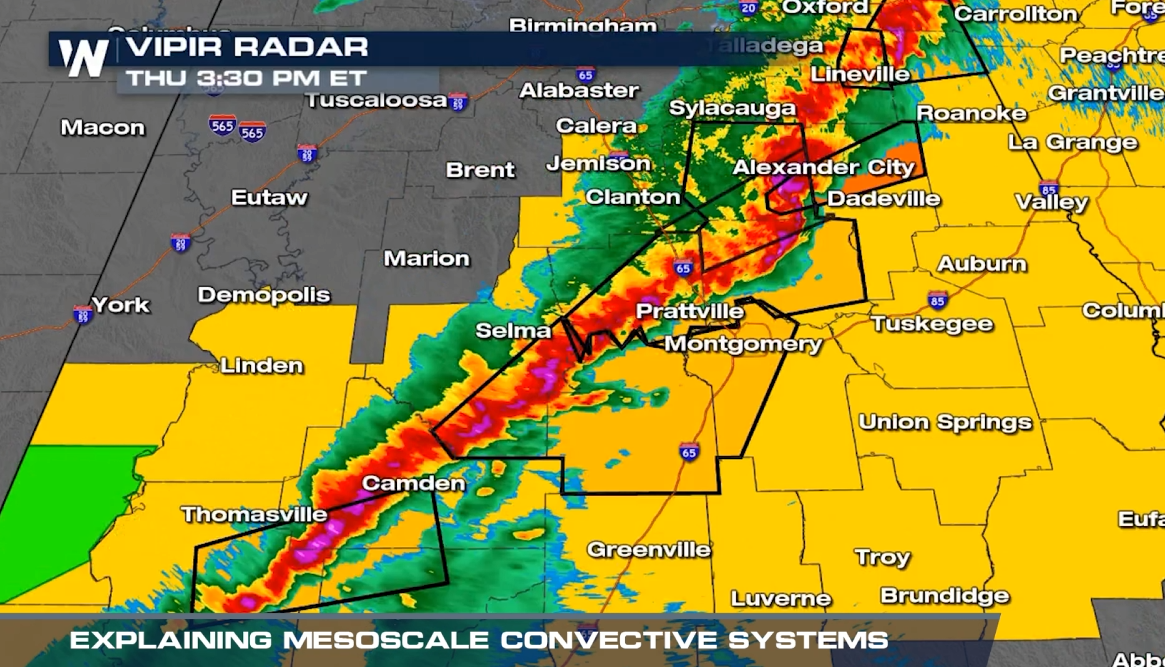What is an MCS?
MCS - A common summertime storm phenomenon, but what is it? MCS stands for Mesoscale Convective System, a term used to describe an organized cluster of thunderstorms that lasts for several hours and can span multiple states.
During the summer, MCSs often form overnight as individual afternoon thunderstorms merge into larger storm complexes. These systems are commonly linear in structure, forming squall lines that stretch for miles. The primary threats associated with MCSs include damaging winds and torrential rainfall, though hail and even tornadoes can also occur.

There are different types of MCSs:
MCC (Mesoscale Convective Complex): A large, circular, and long-lived cluster of storms.
Mesoscale Convective Vortex: A rarer form that can resemble a small hurricane.
Derecho: An especially destructive wind-driven MCS capable of causing widespread damage across hundreds of miles.
Understanding the risks associated with these systems is key. Always have multiple ways to receive weather alerts—especially at night, when many MCS events tend to occur.